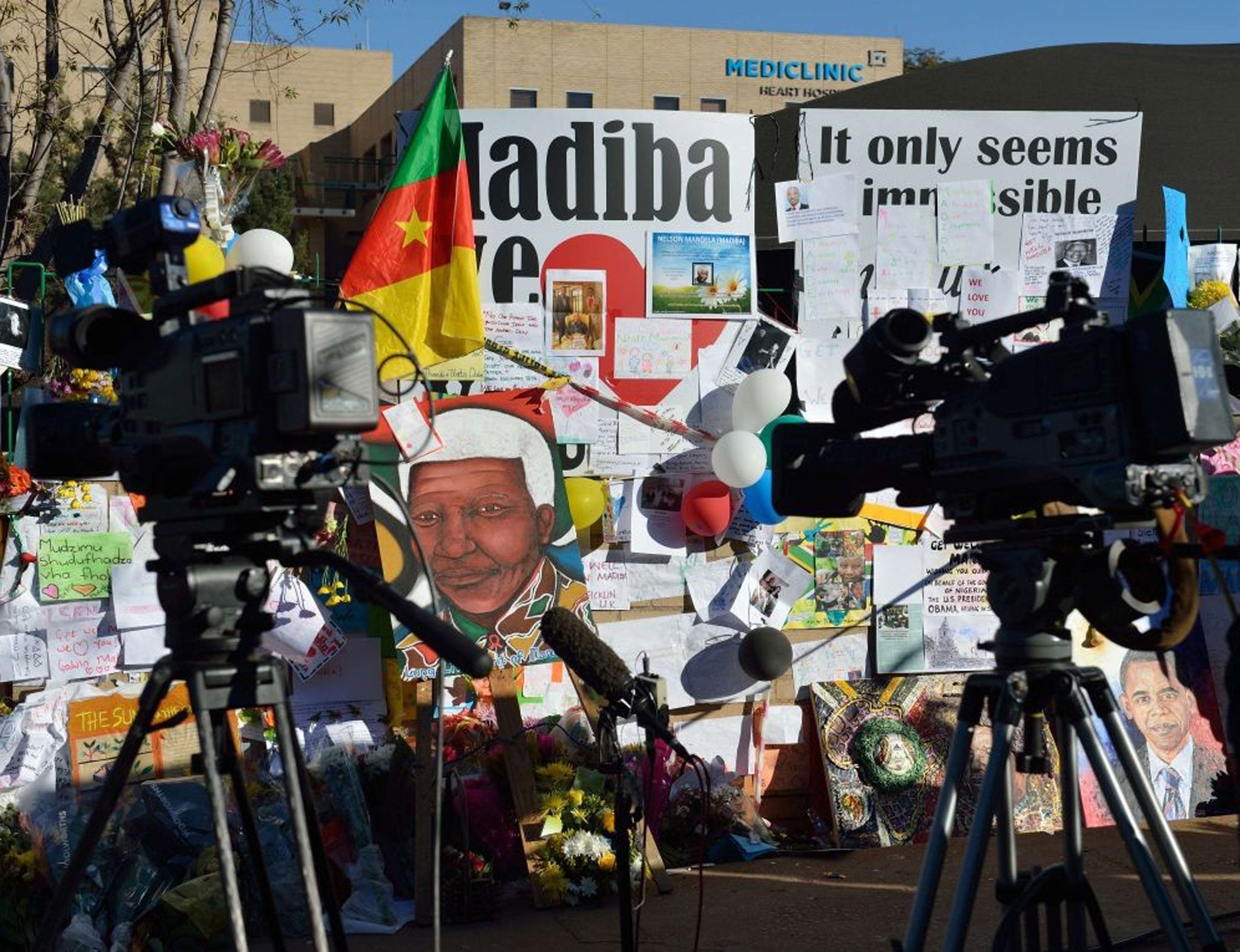Family wrangle over Nelson Mandela's final resting place nears conclusion after court order
Barack Obama has not confirmed whether he will visit the ailing president

Your support helps us to tell the story
From reproductive rights to climate change to Big Tech, The Independent is on the ground when the story is developing. Whether it's investigating the financials of Elon Musk's pro-Trump PAC or producing our latest documentary, 'The A Word', which shines a light on the American women fighting for reproductive rights, we know how important it is to parse out the facts from the messaging.
At such a critical moment in US history, we need reporters on the ground. Your donation allows us to keep sending journalists to speak to both sides of the story.
The Independent is trusted by Americans across the entire political spectrum. And unlike many other quality news outlets, we choose not to lock Americans out of our reporting and analysis with paywalls. We believe quality journalism should be available to everyone, paid for by those who can afford it.
Your support makes all the difference.With Nelson Mandela still critically ill in a South African hospital a family wrangle over his final resting place came closer to conclusion yesterday. A court ordered the former president's grandson, Mandla Mandela, to return the remains of several family members to Qunu, the Eastern Cape village where the anti-apartheid hero grew up.
Three of the former ANC leader's children and two other relatives, understood to be his siblings, were exhumed controversially two years ago from Qunu and moved to Mvezo, a village not far away, in which Mandla Mandela is the local chieftain.
The 94-year-old, who has been hospitalised for three weeks, has said previously that he wanted to be buried with his deceased relatives on a plot in his childhood village.
In a copy of a will dating back to 1997, obtained by South Africa's Mail and Guardian newspaper, the then-president made it clear that he wanted a simple burial in Qunu. Additionally he envisaged a “garden of memory” at the same location that could act as a place of pilgrimage for visitors. Family disputes in the ensuing two decades have meant that the garden project has not moved ahead and his final resting place has remained uncertain even as he has been put on life support in recent days.
Mandla Mandela, an ANC MP since the last election, is believed to have challenged the burial plan, preferring his own village of Mvezo, where his grandfather was born before moving to Qunu. The Nobel Peace laureate's grave, and memorial or museum, would be expected to attract a significant number of tourists.
More than a dozen members of the Mandela family sought an urgent “interdict” from the high court in Eastern Cape to order the grandson to return the remains he had moved to Mvezo. Once their reburial has taken place it can be expected that Mr Mandela would be buried nearby in the event of his death.
With no update on the global icon's health, yesterday, crowds continued to gather outside the Pretoria hospital where he is being treated, while family members and at least two South African cabinet ministers visited him.
US President Barack Obama, who arrived in South Africa last night, has not confirmed whether he will visit Mr Mandela. During his flight from Senegal, the first stop on his Africa tour, he told reporters: “I do not need a photo op and the last thing I want to do is be any way obtrusive.”
Mr Obama's first visit to South Africa as president has not been greeted with the blanket adulation that would have accompanied him had he come after his first election win. Some 300 trades union demonstrators gathered yesterday outside the US Embassy in Pretoria a few streets away from Mr Mandela's hospital to protest his visit. A US flag was burned, marchers wore T-shirts with the slogan “no you can't” and carried placards attacking his foreign policy.
“He's not as popular as he was in South Africa,” said student Billy Sepuru who called on the Obama White House to close the detention facility at Guantanamo bay and engage more with Africa. “We used to see him as the representative of change but he's no different than Bush.”
Join our commenting forum
Join thought-provoking conversations, follow other Independent readers and see their replies
0Comments